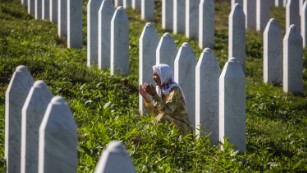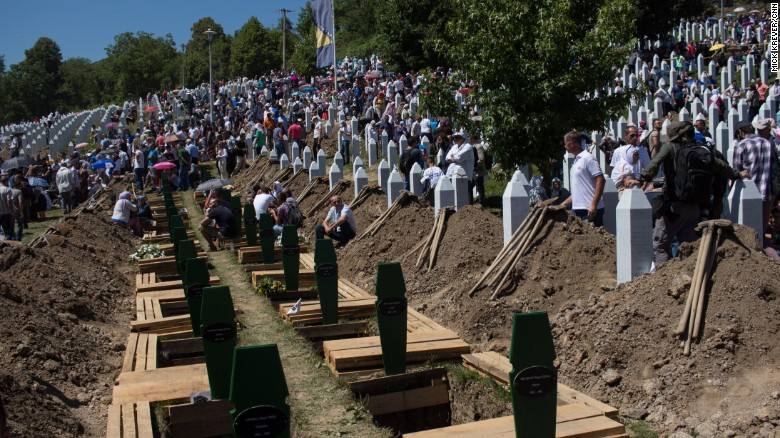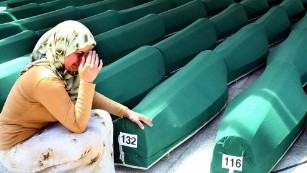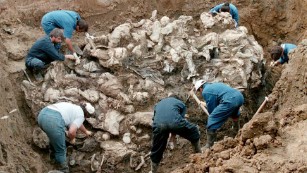Russia kills UN resolution calling Srebrenica massacre genocide
The vote was 10 countries in favour, Russia casting a veto, and four abstentions — China, Nigeria, Angola and Venezuela.
Russia vetoed a UN resolution Wednesday that would have condemned the 1995 massacre of Muslims at Srebrenica during the Bosnian war as a “crime of genocide.”
Singling out the Bosnian Serbs for a war crime would create greater division in the Balkans, the Russians said.
Two international courts have called the slaughter by Bosnian Serbs of 8,000 Muslim men and boys genocide. The victims had sought refuge at what was supposed to be a U.N.-protected site.
But Russia’s UN Ambassador, Vitaly Churkin, objected to focusing solely on Srebrenica, calling the resolution “confrontational and politically motivated” and stressing that Bosnian Serbs and Croats had also suffered during the 1992-95 war that killed at least 100,000 people.
Britain drafted the resolution to mark the 20th anniversary of the Srebrenica massacre on Tuesday, but the vote was delayed to address Russian concerns.
The defeated resolution states that acceptance of “the tragic events at Srebrenica as genocide is a prerequisite for reconciliation” and “condemns denial of this genocide as hindering efforts towards reconciliation.”
Britain’s U.N. deputy ambassador Peter Wilson stressed that the resolution “did not point fingers of blame, score political points nor seek to reopen political divisions.” It also didn’t link the crimes at Srebrenica to the Serb people and recognized there were victims on all sides, he said.
The vote was 10 countries in favour, Russia casting a veto, and four abstentions — China, Nigeria, Angola and Venezuela.
Leaders of the Bosnian Serbs and Serbia, who have close religious and cultural ties to Russia, have lobbied President Vladimir Putin to vote “no.’
Serbia’s pro-Russian President Tomislav Nikolic said Russia’s veto “not only prevented the throwing of guilt against the whole Serbian nation, trying to show it as genocidal, but it also proved that Russia is a real and sincere friend.”
Wilson said Britain was “outraged” by Russia’s veto.
“Russia’s actions tarnish the memory of all those who died in the Srebrenica genocide,” he said. “Russia will have to justify its behaviour to the families of over 8,000 people murdered in the worst atrocity in Europe since the Second World War.”
Bosnians reacted bitterly to the veto.
“This is a defeat of justice,” said Camil Durakovic, the mayor of Srebrenica. “The world has lost. The world — and especially Serbia — will have to face the truth sooner or later,” he said.
Fadila Efendic, a Srebrenica woman who lost her son and husband in the Srebrenica massacre, called the veto “another humiliation of the victims.”
“Today’s vote mattered,” said U.S. Ambassador Samantha Power, who was a 24-year-old journalist in Bosnia at the time of the Srebrenica massacre. “It mattered hugely to the families of the victims of the Srebrenica genocide.
Russia’s veto is heartbreaking for those families, and it is a further stain on this council’s record.”
Russia’s Churkin began his speech before the vote asking for a minute of silence in memory of the victims of Srebrenica and everyone in the Security Council stood, many bowing their heads.
Instead of Srebrenica, he said the council should commemorate, later this year, the 20th anniversary of the 1995 peace agreement, signed in Dayton, Ohio that ended the Bosnian war and make every effort to normalize relations in the Balkans.“Our vote against . . . will, however, not mean that we are deaf to the suffering of victims of Srebrenica and other areas of Bosnia and Herzegovina,” Churkin said.







